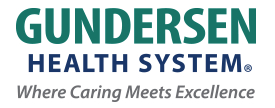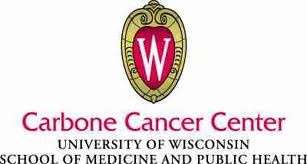Gossypol, Cisplatin, and Etoposide in Treating Patients With Advanced Solid Tumors or Extensive Stage Small Cell Lung Cancer
| Status: | Recruiting |
|---|---|
| Conditions: | Lung Cancer, Cancer |
| Therapuetic Areas: | Oncology |
| Healthy: | No |
| Age Range: | Any |
| Updated: | 11/18/2012 |
| Start Date: | September 2007 |
A Phase 1 Study of R-(-)-Gossypol (AT-101) in Combination With Cisplatin and Etoposide in Patients With Advanced Solid Tumors and Extensive-Stage Small Cell Lung Cancer
RATIONALE: Gossypol may stop the growth of cancer by blocking blood flow to the tumor. Drugs
used in chemotherapy, such as cisplatin and etoposide, work in different ways to stop the
growth of tumor cells, either by killing the cells or by stopping them from dividing. Giving
gossypol together with combination chemotherapy may help kill more tumor cells.
PURPOSE: This phase I trial is studying the side effects and best dose of gossypol when
given together with cisplatin and etoposide in treating patients with advanced solid tumors
or extensive stage small cell lung cancer.
OBJECTIVES:
Primary
- To determine the maximum tolerated dose or recommended phase II dose of R-(-)-gossypol
when combined with cisplatin and etoposide in patients with advanced, refractory solid
tumors and/or extensive stage small cell lung cancer (ES-SCLC).
- To evaluate the toxicity and tolerability of R-(-)-gossypol in combination with
cisplatin and etoposide in patients with advanced, refractory solid tumors and/or
ES-SCLC.
- To evaluate the antitumor activity of this combination per tumor measurements using the
RECIST criteria.
Secondary
- To evaluate the pharmacokinetics of R-(-)-gossypol as a single agent and in combination
with cisplatin and etoposide in plasma.
- To perform pharmacodynamic studies (i.e., genotyping of drug metabolizing enzymes, gene
expression, and proteomics of drug-related pathways) on archived blood samples from
patients treated with R-gossypol in combination with cisplatin and etoposide.
OUTLINE: This is a dose-escalation study of R-(-)-gossypol.
Patients receive oral R-(-)-gossypol twice daily on days 1-3, cisplatin IV over 60 minutes
on day 1*, and etoposide IV over 30 minutes on days 1*-3. Treatment repeats every 21 days
for up to 6 courses during the dose escalation and 4 courses in the expanded extensive stage
small cell lung cancer cohort, in the absence of disease progression or unacceptable
toxicity.
Blood samples may be collected on day 1 of courses 1 and 2 for pharmacokinetic analysis,
biomarker assays, and correlative studies.
After completion of study treatment, patients are followed for 30 days.
NOTE: *For patients in the dose escalation portion of the study, cisplatin and etoposide
will be started on day 2 during course 1; they will be given on day 1 during all subsequent
courses.
DISEASE CHARACTERISTICS:
- Diagnosis of 1 of the following:
- Histologically confirmed malignancy that is metastatic or unresectable and for
which standard curative or palliative measures do not exist or are no longer
effective (dose-escalation cohorts)
- Histologically or cytologically confirmed extensive stage small cell lung cancer
(ES-SCLC) (maximum tolerated dose expansion cohort)
- Patients with small cell lung carcinoma and brain metastases should have
stable/improved lesions for at least 1 month following treatment, no neurological
symptoms, and no requirement for corticosteroids
- Prior whole-brain radiotherapy for brain metastases allowed for patients with
small cell lung carcinoma
- Measurable or evaluable disease
PATIENT CHARACTERISTICS:
Inclusion criteria
- ECOG performance status (PS) 0-2 (Karnofsky PS 60-100%)
- Life expectancy > 12 weeks
- Leukocytes ≥ 3,000/mcL
- Absolute neutrophil count ≥ 1,500/mcL (no transfusions allowed)
- Platelets ≥ 100,000/mcL (no transfusions allowed)
- Total bilirubin < 1.5 mg/dL
- AST(SGOT)/ALT(SGPT) ≤ 2.5 X institutional upper limit of normal
- Serum creatinine < 1.5 X institutional upper limit of normal OR creatinine clearance
≥ 45 mL/min
- Not pregnant or nursing
- Negative pregnancy test
- Fertile patients must use effective contraception during and for at least 1 month
after completion of study treatment
Exclusion criteria
- History of allergic reactions attributed to compounds of similar chemical or biologic
composition to L-gossypol or other agents used in study
- Any condition (e.g., gastrointestinal tract disease resulting in an inability to take
oral medication or a requirement for IV alimentation, prior surgical procedures
affecting absorption, or active peptic ulcer disease) that impairs ability to swallow
and retain R-(-)-gossypol tablets
- Patients with malabsorption syndrome, disease significantly affecting
gastrointestinal function, or resection of the stomach or small bowel
- Patients with ulcerative colitis, inflammatory bowel disease, or a partial or
complete small bowel obstruction
- Uncontrolled intercurrent illness including, but not limited to, any of the
following:
- Ongoing or active infection
- Symptomatic congestive heart failure
- Unstable angina pectoris
- Cardiac arrhythmia
- Psychiatric illness or social situations that would limit compliance with study
requirements
- Patients with > grade 2 symptomatic hypercalcemia (based on investigator discretion)
PRIOR CONCURRENT THERAPY:
Inclusion criteria
- See Disease Characteristics
- Recovered from prior therapy
- At least 4 weeks since prior chemotherapy (6 weeks for nitrosoureas and mitomycin C)
- At least 4 weeks since prior radiotherapy
- More than 4 weeks since prior and no other concurrent investigational agents
- Concurrent routine use of erythropoietin allowed at investigator's discretion
Exclusion criteria
- Prior therapy that inhibits the Bcl-2 family
- Prior chemotherapy or radiotherapy in patients with ES-SCLC
- Prior use of R-(-)-gossypol
- Requirement for routine or prophylactic use of hematopoietic growth factors
(including granulocyte colony stimulating factor, granulocyte macrophage colony
stimulating factor, or interleukin-11)
- Concurrent combination antiretroviral therapy for HIV-positive patients
We found this trial at
5
sites
Click here to add this to my saved trials
1900 South Avenue
La Crosse, Wisconsin 54601
La Crosse, Wisconsin 54601
(608) 782-7300

Gundersen Lutheran Center for Cancer and Blood Gundersen Health System is where caring meets excellence...
Click here to add this to my saved trials
600 Highland Ave.
Madison, Wisconsin 53792
Madison, Wisconsin 53792
(608) 262-5223

University of Wisconsin Paul P. Carbone Comprehensive Cancer Center UW Carbone Cancer Center holds the...
Click here to add this to my saved trials
1305 West 18th Street
Sioux Falls, South Dakota 57117
Sioux Falls, South Dakota 57117
(605) 328-8000

Sanford Cancer Center at Sanford USD Medical Center Sanford Health is an integrated health system...
Click here to add this to my saved trials
Click here to add this to my saved trials